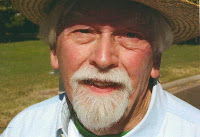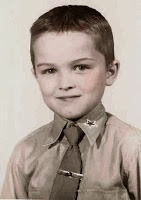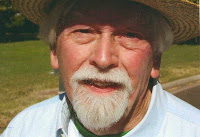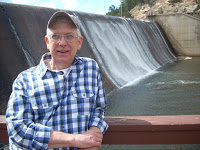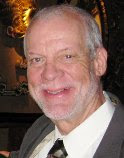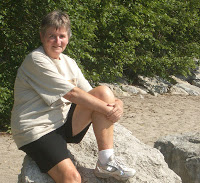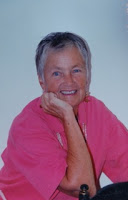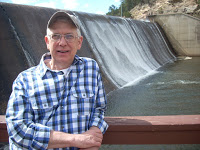This topic got me humming ‘Leavin’ on a Jet Plane,’ the old Peter, Paul, and Mary hit, which got me thinking about leaving on jet planes – or not.
It was 2003 and I was heading for DIA for a flight to London. Unfortunately, it was Tuesday March 18th of that year, and Denver was in the grip of one of the worst blizzards in the city’s history. All day, as the snow fell and the winds raged, I repeatedly checked on the departure status of my flight. Each time I was assured it was ‘on time’, even though every other flight out, or in, appeared to be cancelled. Eventually we could delay no longer and Betsy and I battled our way through at least a foot of heavy wet Spring snow in Betsy’s ancient Honda Civic – we had no four-wheel-drive vehicle at that time – and somehow made it to DIA. Sure enough, my flight was still listed ‘on time’ so Betsy left to fight her way back home, which by some miracle she was able to do.
Right on time we began boarding our plane; the only one visible at the entire airport with it’s lights on. The rest were hunkered down: abandoned, dark, and dormant. Meanwhile, the snow kept falling. The plows went doggedly up and down one runway which we London passengers began calling ‘our’ runway. But, no matter how the plows tried, they could not keep the surface clear. The snow was simply coming down too hard. After a couple of hours we moved away from the gate and onto the white runway. Some cheered. Most peered apprehensively out of the windows. Safely on the runway, engines roaring, we sat. And sat. Almost three hours later we slunk back to the gate. We were not leaving.
Over 4,000 people were stuck that night at DIA. The runways were closed and the roads were closed. Nobody was leaving. Most of the people were in the terminal and on other concourses, especially Concourse B which is always busy. Our flight had been leaving from Concourse A which is a little off by itself. The 500 or so passengers from that flight were the only people on the eerily dark and quiet Concourse A. The entire airport was without power except for that provided by the emergency generators. By the time we disembarked from our failed attempt at take-off, all the restaurants and shops were tightly closed up, dark and gated. So to bed without supper. Oh well! Come to that, without a bed either! We discovered that cots and blankets had been provided from DIA emergency supplies while we were spinning out wheels on the runway. There were not nearly enough, so we late-comers to the party had no hope. It was the hard marble floor for us.
Everyone seemed pretty cheerful all the same; nothing to be done about it. We all fanned out across Concourse A picking out a spot for the night. There was no hope of stretching out across a few chairs; they were all of the kind where several chairs are joined together in a row, with hard immovable arms between each. I remembered that behind the service desks there were rubber mats for the employees to stand on. Aha! That would soften that marble surface. I staked my claim by leaving my hand luggage in the middle of the mat and went off to see what others were doing. Of course our luggage was on the plane, and with carry-on alone it was hard to be very creative. Many of us hoped to use our coat as a pillow, unless or until it got too cold, with only a little emergency heat to keep us warm.
I sauntered over to a group of twenty or so in the midst of animated discussion. They were gathered around an old man being taken back to the U.K. for a final visit to celebrate his 90th birthday. No, they were all agreeing, he certainly could not be expected to sleep on the floor. He needed a cot. And a blanket. A raiding party of four young things was dispatched to the terminal, returning after a few minutes grinning broadly and carrying a cot and two blankets. They were greeted with cheers. Even pumped fists. Amazing, I thought. After a very few hours we had already become a village, a tribe, isolated out here, bereft of comfort, ready to attack that main body of refugees lolling around in the terminal in relative luxury, and simply take what we need.
After a pretty uncomfortable night for most of us, we nevertheless greeted each other cheerfully enough in the bathrooms in the morning. We had running, if cold, water; and, most important of all, we had flushing toilets. No morning coffee, no breakfast, but never mind, at least we had water to drink, and we’d be leaving this morning one way or another. Having encouraged each other in this way, we unanimously refused to see that it was actually snowing just as hard as it had been the day before and it now looked as if there was a good two feet of snow out there.
For a while we waited, expecting some official to appear momentarily with news. Nothing happened. Some child discovered, just playing around, that the phones were working. This was before cellphones were ubiquitous, and there were still banks of pay phones scattered around the airport. They couldn’t be working. Surely lines must be down? There was a rush to try them and they offered up the friendly hum of a dial tone. Unbelievable! After a wait for a phone to free up, I was able to call Betsy. She had spent a nightmare three hours getting back home from dropping me off at DIA, and of course had not been anywhere since. Assuring that I would call as soon as we knew about our flight, I joined the chattering people. That tribal village feeling was back as we fell over ourselves to exchange the news we had just heard via our phone calls.. It was as if we had been cut off from the outer world for weeks. There’s over two feet of snow. …. all the roads are closed in the city and in most of Colorado …… all the Interstates are closed; Denver is completely cut off ….. they’re calling out the National Guard to rescue stranded motorists …… it’s gonna snow all day and tonight and maybe stop tomorrow ….. the Red Cross can’t get here with food ………
The last two pronouncements left a little cloud of gloom in the air. Another whole day here without food? Another night on the cold hard floor? We gave a kind of collective shrug. Nothing to be done. Just fill the day.
A group of us went wandering off along the train tunnels, feeling like adventurous explorers. What would we find? Was there a food stash on Concourse D? Had more cots and blankets appeared in the terminal? Was there, by some miracle, coffee anywhere? We found none of the above. What we did find was water pouring in from the ceiling of the terminal onto astonished wet people, and, sadly, now wet cots and blankets, below. Apparently, so rumor had it, the weight of the wet snow had caused a rip in one of those famous tents on top of the Jeppesen Terminal.
Our little tribal band leaned over the railings on the second level and looked down upon the soggy scene below with, I am ashamed to admit, a certain grim satisfaction. That’s just what they deserved for hogging all those cots and blankets. Wondering, without much sympathy, how bad that waterfall would get, we returned to our village with the news.
We found a surprisingly varied scene. Some people sat quietly reading a book from their carry-on or doing the crossword in yesterday’s Denver Post. Other groups played cards. Again, this was prior to the days of universal laptops and tablets and smartphones. Further down the concourse was a young woman instructing a very well-attended aerobics class. Across from them was a yoga group. Still further along, a young man and woman had gathered up most of the kids and were organizing games. Others had started kids’ relay races down the concourse, using empty toilet rolls as batons. It was really rather an incredible scene. And the best of it was, everyone was smiling and laughing and just generally enjoying the day.
Definitely a village.
When we crawled up off that cold hard floor the next morning, pretty hungry by now, the snow had lessened to flurries and the skies looked slightly less threatening. Surely today we would leave! But there was a mighty lot of snow on the ground, and the wind had whipped it into really high drifts. On the phone, miraculously still working, Betsy knew little more than I did. With widespread power outages it was hard for most people to find out anything. Her little Honda, she said, was completely buried, leaving not even a little hump in the snow to signify it’s existence.
But for the first time there was a great deal of activity outside. Snow plows resumed their valiant attempts to clear paths and trucks loaded with mounds of sticky wet snow disappeared from view. We sat watching every move from the huge windows. Surely we would leave today!
The day wore on. Our village returned to much the same activities as the previous day, but with a slight edge of grim determination and a little less real enjoyment. This was getting old. By afternoon a few planes were taking off, but ours was not among them. There was great excitement when word reached us that the Red Cross had arrived in the terminal, followed by some disappointment when all they had to eat was food bars; two each. But as the power was now back on, they did have urns of good hot coffee, and all 4000 people lined up for their drink and snack in surprisingly good-humored and orderly fashion.
Back to our village and one more night in my little nest behind the service desk, but, joy of joys, the sun shone from a clear blue sky in the morning and Betsy informed me in our morning phone call that the airport was officially open. Soon, clean unsmelly unwrinkled people began to arrive, trampling our village. Our tribe dispersed to various just-opened restaurants. Eventually our plane took off, right on time if three days late.
As the wheels lifted off the runway a great cheer arose from us all. We really were, finally, leaving.
© November 2016
About the Author
I was born and raised in England. After graduation from college there, I moved to the U.S. and, having discovered Colorado, never left. I have lived in the Denver-Boulder area since 1965, working for 30 years at IBM. I married, raised four stepchildren, then got divorced after finally, in my forties, accepting myself as a lesbian. I have been with my wonderful partner Betsy for thirty years. We have been married since 2013.
